In memory of:
Donate to this scholarship fund
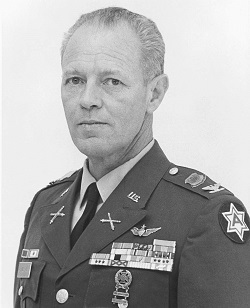
Ejner J. Fulsang, Jr., was born in Chicago in 1922 as the the eldest child. He and his six sisters and grew up during the hard years of the Great Depression. Colonel Fulsang was first and foremost a soldier. At age fifteen he enlisted in the National Guard and by age seventeen he had obtained the rank of sergeant, outranking his father who was also a member of the Guard. It was later said, “nothing was ever asked of any soldier under his command that young Sergeant Fulsang would not have asked of his own father, Private First Class Ejner J. Fulsang, Sr.” With the outbreak of World War II, he reenlisted in the regular Army. He was commissioned a second lieutenant of field artillery and went on to become an Army aviator, serving as a front line artillery observer pilot in Italy as well as taking part in the invasion of southern France. He went on to finish the war, commanding a troop ship back to the United States. After a brief stay, he commanded a shipload of German POWs back to Germany, where he served as part of the occupation force. During this time he met and married Lieutenant Dorothy Bowman. They raised four children and were married forty-three years until her passing in 1991.
During his military career, Colonel Fulsang served in the Korean and Vietnam wars. He also had numerous peacetime assignments in the United States, Europe, and Paraguay. His final assignment was as the Professor of Military Science at Oregon State University from 1972 to 1975. It was a fitting assignment, as education was always very important to him. He was a staunch proponent of continuing education throughout one’s life, obtaining both his undergraduate and master’s degrees while serving on active duty. He retired in 1975 after thirty-eight years of military service, three wars, and numerous commendations, including the Legion of Merit with two oak leaf clusters, and the Bronze Star. He settled in Corvallis, where he remained active as a general contractor and a municipal court judge for Junction City. He was a dedicated member of the Corvallis Rotary Club and the Military Officers Club of Corvallis and served a term as president of each organization. He was remarried in 1993 to Enid Berne. Colonel Fulsang was a strong supporter of ROTC. He contributed to this Endowed ROTC Scholarship Fund during his lifetime and his family provided memorial contributions following his death in 1998.
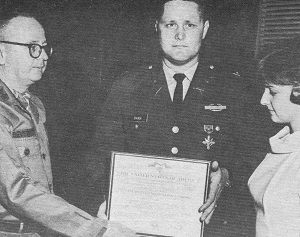
Gerry A. Harr was born on September 3, 1943, in Roseburg, Oregon. He graduated from Oregon State University and received his commission as a second lieutenant in December 1966. Gerry was profiled by author John M.G. Brown n the book, Rice Paddy Grunt, Unfading Memories of the Vietnam Generation.In the book, Brown describes Harr in Vietnam as a ”leader of his men by example; the rare kind, the best kind, the one you’ll follow even though Americans aren’t followers.” He served two tours in Vietnam and was killed in action in Quang Nam, South Vietnam on his second tour in July 1971. Captain Harr is on Panel 03W, Line 098 of the Vietnam Memorial Wall in Washington, D.C. The following article appeared in the February 18, 1969, edition of The Ranger newspaper at Fort Lewis, Washington:
A young platoon leader who charged and destroyed two Viet Cong positions to spring his men from a deadly enemy trap was awarded the Distinguished Service Cross. Maj Gen William W. Beverley, Fort Lewis CG presented the nation’s second highest decoration for heroism to Captain Gerry Harr, 25, now with the 15th Support Brigade. On April 7, 1968, the then lieutenant performed his extraordinary feat as the lead element in a reconnaissance operation near the Song Be River in the Chon Thon Province. During the sweep, contact was made with a well fortified and entrenched enemy force in its base camp. Pinned down by heavy automatic weapons and small arms fire, the platoon was halted by intense enemy fire. Explained Cpt Harr: ‘I couldn’t move forward or backward without taking heavy casualties. Something had to be done to neutralize those two positions and I took this course of action.’ He moved forward alone amid whizzing bullets to fire an antitank weapon at a key bunker. Unable to destroy the strongly built fortification, he charged headlong through the enemy fire to hurl a hand grenade into the bunker. He crawled inside to insure the Viet Cong were dead. Fire from another undetected bunker drew his attention and he attacked this one, killing one Viet Cong with a rifle and one with a grenade. With both bunkers silent his men launched a devastating assault and overran the enemy base camp. Among his decorations are four Bronze Star Medals with “V” device (Valor), three Purple Hearts, Vietnamese Campaign Medal, Vietnamese Service Ribbon and the National Defense Service Medal.
Recognition of Captain Gerry Harr with a memorial scholarship was long overdue. Pamela Harr, family and friends who knew and served with Captain Harr contributed to this scholarship in tribute to him.
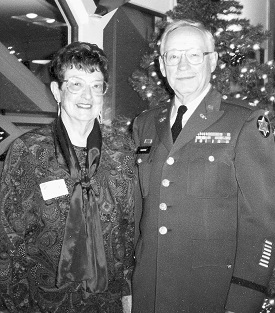
Stephen C. Marks was born March 18, 1920, in Stanley, Wisconsin. In 1939 he joined the Wisconsin National Guard and was federalized on October 14, 1940. He served in the U.S. Army 32nd Infantry Division as a Chemical Supply Officer in the South Pacific Theater from October 1942 until his discharge as a major in April 1946. While in the South Pacific he saw action in New Guinea and the South Philippines, receiving the Asiatic Pacific Ribbon with two bronze stars, the American Theater Ribbon, the Philippine Liberation Ribbon with one bronze star, and the Victory Ribbon. He joined the Army Reserves and retired as a lieutenant colonel on March 18, 1980.
Steve attended the University of Wisconsin at River Falls and received a bachelor of science degree in agricultural education in 1947. Following graduation, he was an instructor in the “on-the-farm” training program for returning veterans at the vocational and adult school in Madison, Wisconsin. After four years of teaching, he became the state supervisor and farm service director with a commercial firm serving farmers. In 1954 he returned to school, enrolling in the University of Wisconsin at Madison for graduate study in extension education. He graduated in 1955 with a master’s degree. From 1955 to 1956 he worked for Riverside County in California, and in 1956 came to Oregon State College as an associate professor and extension agricultural economist in the Department of Agriculture Economic. He served in that capacity doing marketing analysis and outlook until his retirement in October 1980.
Steve belonged to the OSU 25 Year Club, the University of Wisconsin Alumni Organization, OSU Beaver Club, Corvallis Country Club, the Elks, Saint Mary’s Church, the Military Officers Club of Corvallis, and the Spinning Antlers Square Dance Club. His hobbies included dancing, golfing, traveling, gardening, woodworking, and reading. His travels included an annual trek to Hawaii for the winter, as well as the British Isles, Italy, Austria, Germany, and the Bahamas. Steve passed away on January 11, 1997, survived by his wife, Helen, whom he had married in 1975. He had five children from an earlier marriage. Family and friends who are committed to helping ROTC students receive their degree and a commission in the U.S. Army contributed to this scholarship fund in tribute to Steve.
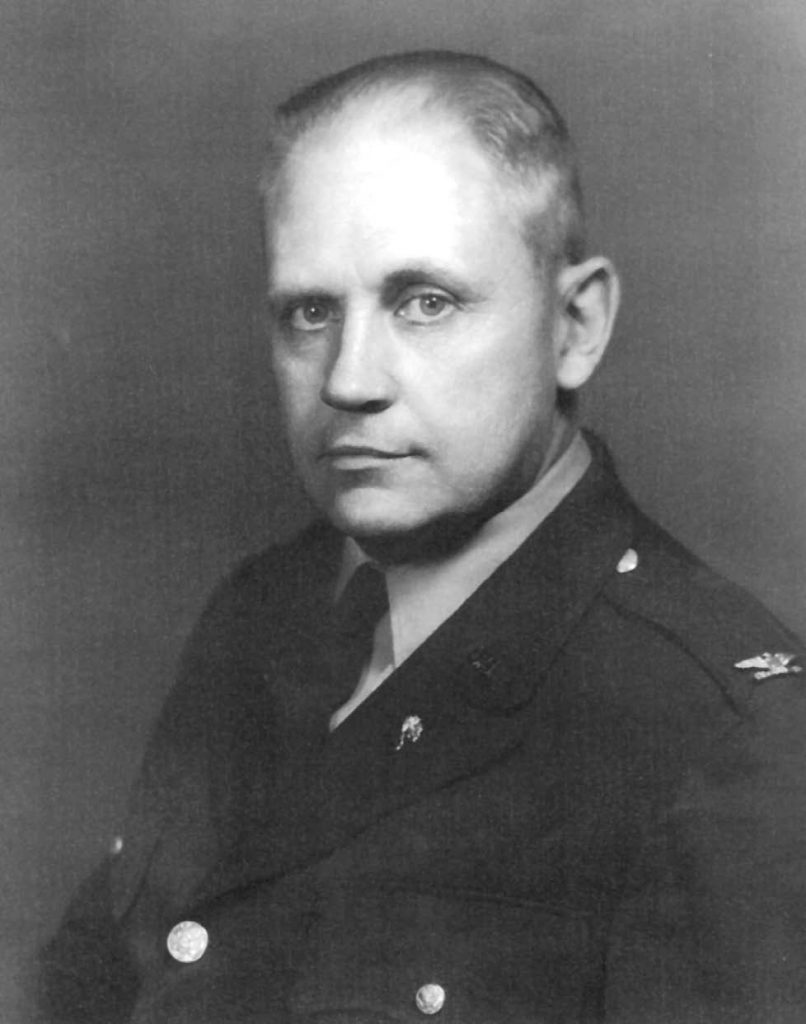
Cecil M. MacGregor was born February 10, 1908, in Central City, Colorado. His father’s mining engineering work took the family to the Terrebonne area in 1913. He attended the local grade school and was graduated from Redmond Union High School in June 1926. He was active in Smith-Hughes agriculture, tennis, and basketball and helped on the family farm. He entered Oregon Agriculture College in September 1926. He then went to Portland 1927-28 to study and work to become a journeyman electrician. Later he worked for OAC while completing his studies. He also helped write engineering student publications. He completed the ROTC training course and was commissioned a second lieutenant of Field Artillery in the Army Reserve in July 1931.
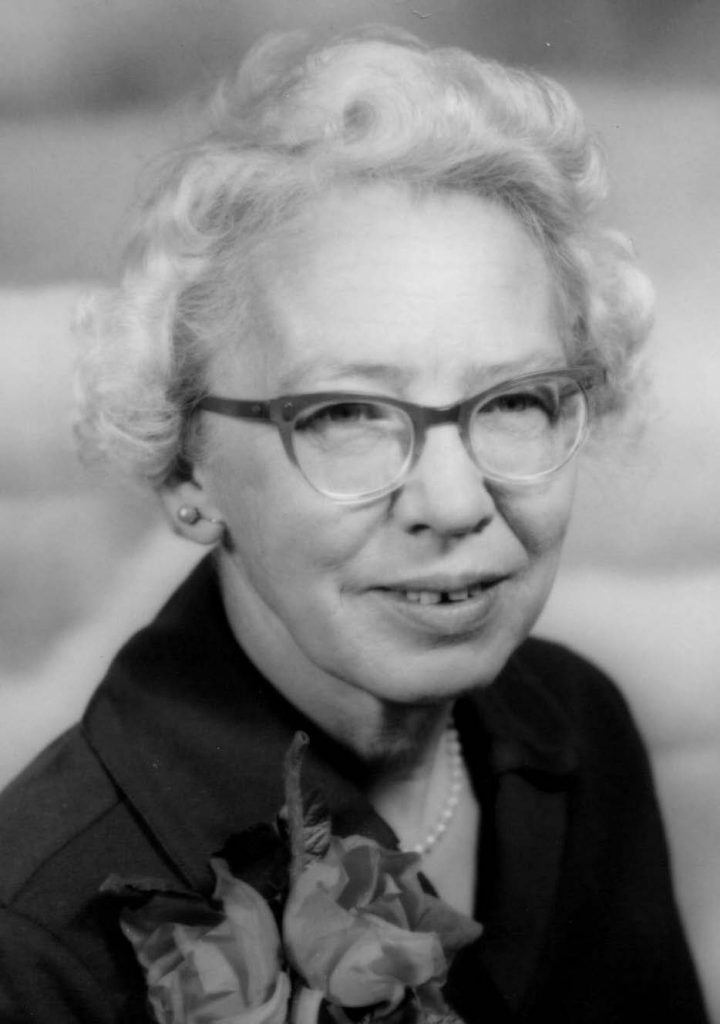
Martha MacGregor was born in Montana to Anthony J. and Martha Holling Dreyer. Her mother died shortly after giving birth and her father was a successful architect and engineer. Due to his work, the family moved to numerous locations in the West before settling in Portland in 1926. Martha graduated from Washington High School in Portland 1928 and continued her education at Oregon State Agricultural College.
Cecil and Martha met while both were students at OAC. The couple were married December 1931 and they graduated from OAC together in June 1932—he with a bachelor’s degree in mechanical engineering and she with a degree in home economics. At that time, the nation was in the midst of the Great Depression. Following graduation, the couple moved to Portland, where Cecil pursued his engineering career. He was granted a professional engineer’s license in July 1934. That summer he joined the U.S. Army Corps of Engineers as a land surveyor on the Bonneville Dam project. Upon completion of the dam he was employed at Portland Gas and Coke Company, a large utility company doing engineering work related to sales. He helped found the Oregon Heating and Ventilating Engineers group. He was drafted into the Army in December 1940. He attended the Field Artillery School, Fort Sill Oklahoma, and remained there on the school’s teaching staff until November 1942 when he was transferred to the Office of Chief of Army Ordnance at the Pentagon. Here he did engineering work related to teaching the operation and maintenance of new military weapons and vehicles. He was transferred to the Training Division, Army Service Forces, the Pentagon, as Chief of Training Doctrine Development for mechanical equipment. He attended the Command and General Staff College, developed training manual standards, and wrote six manuals covering newly developed equipment. He was then transferred to the War Department General Staff–G3, to broaden the activity, and remained there until the end of the war with Japan. With a short break in service, he served on active duty until his retirement as a full colonel in June 1963. Following retirement, he joined the staff at OSU and worked as an engineer on major expansions and renovations of campus facilities.
Martha had a very busy life as a homemaker and volunteer. She worked in home economics with the Homemaking Group in Portland. During their military years, she was active in the Army Women’s Clubs, Red Cross activities, youth activities and internal support for military families. Martha was responsible for creating a school library in Fairlington, Virginia, in 1943 and a general use library for American forces on Okinawa in 1948. Due to Cecil’s military career, the couple lived in many places, including Fort Sill, Oklahoma; Baltimore, Maryland.; Seattle, Washington; Bryan, Texas; Carlisle, Pennsylvania; Washington, D.C.; Orleans, France; and Tooele, Utah. After Cecil retired from the Army, they traveled throughout the West before settling in Corvallis.
While Cecil did engineering work for Oregon State University, Martha helped with the local military wives club. She also joined the Garden Club and helped plant and care for plants in Corvallis parks. In 1970, Cecil retired from OSU and the couple traveled extensively with the Wally Byam Caravan Club of the Airstream RV Association. Martha also taught craft activities, a hobby she remained active in for the rest of her life. She was a member of the Friends of the Library, the OSU Folk Club and the OSU Home Economics Club. Martha was a strong supporter of education and Oregon State University. She established a perpetual annual scholarship for home economics at OSU and a scholarship at OSU’s Hatfield Marine Science Center. She donated funds to the Family Study Center, the OSU Alumni Center and the OSU Library.
Colonel MacGregor passed away on May 27, 2003. After moving to Stoneybrook Lodge in 2003, she donated her house to OSU with the resulting funds to be used by the College of Engineering. Martha remained a staunch supporter of the ROTC program and education for young men and women until her death on December 31, 2004.
John H. Landers, Jr. was born on Jan. 24, 1921, in Cedar County, Mo., to J. Herbert and Ruth (Kirby) Landers. He attended Dadeville and Stockton schools, then the University of Missouri, graduating in 1942, six months early, to support the war effort by being commissioned in the U.S. Army. His primary service was in Europe as a Forward Artillery Observer. Of particular note was an engagement with a German Panzer tank division on Nov. 25, 1944, at Schalbach, Alsace, France. 1st Lt Landers was instrumental in directing artillery fire on the massed enemy unit about 75 yards in front of himself. The attack was repulsed, and Lt Landers received the Distinguished Service Cross and the British Military Cross for his valor.
For other combat he also received the Bronze Star and Purple Heart. The Purple Heart is the oldest military decoration in the world currently in use, and the first American award made available to the common soldier. It was initially created as the Badge of Military Merit by General George Washington. It is awarded to members of the U.S. armed forces who are wounded or killed in action. Postwar, he continued his military service as a member of the U.S. Army Reserves in Corvallis, retiring as a lieutenant colonel after a combined 37 years of active and reserve service.
After the war, John returned to the University of Missouri for a master’s degree and was subsequently hired by Oregon State University’s Department of Animal Science in 1950. Including the year taking coursework for his doctorate at Kansas State University, he served 27 years at OSU, principally as a State Extension Livestock Specialist, traveling across Oregon, helping farmers and ranchers. He also was a livestock judge at numerous county fairs and the Oregon State Fair for many years. John also ran the annual sheep-shearing school at OSU for decades, as well as doing custom shearing in the central Willamette Valley. In many cases, he received the wool as part of his payment, using it as inventory for his and wife Mary’s Old West Wool Company. He concurrently was secretary of the American Romney Breeders Association for 37 years.
He had a lifelong passion for gardening, sharing his expertise as a Master Gardener in Benton and Linn counties. Visitors always could count on receiving berries, cherries or other in-season produce as thanks for stopping by the house. John also was well known for his outstanding salmon bakes using the open pit method. He and Valley Catering were the folks to call to make festive occasions deliciously memorable.
He was proud of his service as a Kiwanian, particularly his long record of continuous attendance, which was sadly interrupted by his stroke in 2010. Within Kiwanis he was a driving force in the annual Christmas greenery sales and pancake breakfasts. He also enjoyed fundraising for Doernbecher Children’s Hospital. He received many honors and awards; among them were Kiwanian of the Year (1980), Linn County Master Gardener of the Year (1991), Corvallis Senior First Citizen (1993), the Honorary Future Farmers of America Degree, and Grand Marshal of the Veteran’s Day Parade (Albany, 2007).
In 2008, John established this endowed scholarship fund with BCF to benefit ROTC students. During John’s lifetime, the fund was called the “Order of the Purple Heart Scholarship.” John was commander of the local chapter of the Military Order of the Purple Hearts that year. The Military Order of the Purple Heart was formed in 1932 for the protection and mutual interest of all who have received the decoration. Composed exclusively of Purple Heart recipients, it is the only veterans’ service organization comprised strictly of combat veterans. Each year, the regional chapter of the Military Order of the Purple Heart presents an award to students in the ROTC units at Oregon State University and Western Oregon University. By establishing this fund with BCF, John wanted to increase the scholarship awards given to ROTC students in Oregon.
Just before his death on March 7, 2013, John relented to the wishes of his friends and family to rename the fund in his honor.
